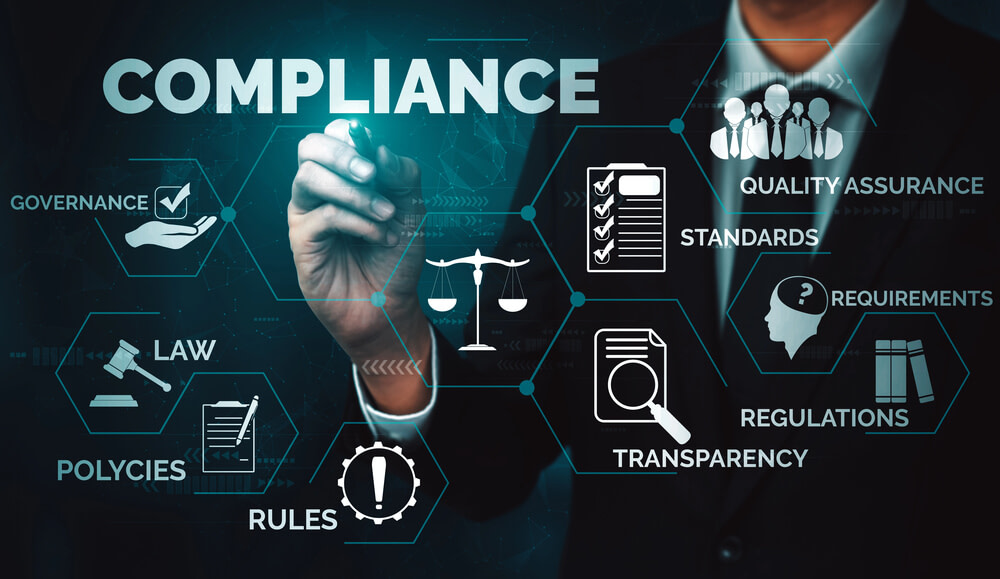What Is a SOC Analyst?
A Security Operations Center analyst is a key cybersecurity position. SOC analysts are first responders to incidents and monitor systems to strengthen the security posture of organizations. Get a detailed answer to the question of what a SOC analyst is and learn how an all-in-one information security platform can support analysts and SOC teams.

What Is a SOC Analyst?
Analysts on a SOC team assess threats and test the information technology infrastructure of organizations for vulnerabilities. These cybersecurity professionals stay apprised of current trends in the cybersecurity industry and bring up-to-date knowledge to bear on investigations.
Most organizations can benefit from continuous monitoring of IT infrastructure by skilled cybersecurity professionals. The right information security platform can establish a baseline for SOC team workflows, promote the visibility of IT assets and provide resources to achieve and maintain compliance.
Whether an organization relies on independent analysts or a full SOC team, these professionals play a key part in any security program. Analysts have the skills necessary to examine applications, networks and systems, identify issues and make recommendations for managing risk.
What Do SOC Analysts Do?
SOC analysts monitor and assess the security of IT infrastructure on an ongoing basis. What is a SOC analyst job description? The core responsibilities of this role involve aggregating and correlating data that pertains to the security of systems.
During cybersecurity audits, analysts identify factors that could potentially expose an organization to breaches or exploits. These professionals can recommend and implement preventive and corrective measures. SOC analysts are also responsible for conducting investigations into security incidents.
SOC teams rely on analysts to provide the latest information about security threats. Analysts should stay apprised of developments in the cybersecurity field and apply the best available solutions to improve and maintain organizational systems.
What Are the Skills Required for a SOC Analyst?
Analysts have useful skills for SOC teams and broader IT departments. Many professionals who have experience in this role can provide ethical hacking services. Ethical hackers perform penetration testing and vulnerability scanning to strengthen, rather than undermine, security programs.
Other relevant skills for SOC analysts include the ability to detect and respond to intrusions or other security incidents in an effective and timely manner. SOC analysts should be able to identify and patch breaches in network security or other systems, determine the scope of exploits and suggest risk mitigation measures.
The most successful SOC analysts also tend to have several relevant soft skills. Critical thinking, problem solving and organization are applicable to most cybersecurity positions. Analysts should also be able to collaborate with other members of SOC teams and communicate findings in both technical and general terms.
Which Certifications Are Relevant for SOC Analysts?
Several cybersecurity and IT certifications can be beneficial for SOC analysts. Many analysts hold degrees in computer science or information technology. These professionals can also pursue professional training to gain experience in the field of security information and event management or SIEM. Here are some of the most relevant credentials for SOC analysts from the leading technical certification bodies:
- Cisco Certified CyberOps Associate
- CompTIA CySA+
- CompTIA Security+
- EC-Council Certified SOC Analyst
- EC-Council Certified Ethical Hacker
A qualified SOC analyst may hold one or more certifications. These credentials indicate that a candidate for a SOC analyst position has training in the security life cycle of modern IT environments and specialized knowledge about security operations centers.
These certifications can help SOC analysts understand, implement and adhere to security frameworks and standards. Based on the type of organization and industry, these can include information security standards published by the International Organization for Standardization, the Payment Card Industry Data Security Standard and other privacy and security methodologies.
What Are the Tiers of SOC Analysts?
To fully understand what a SOC analyst is, it’s helpful to consider the tiers of this position. The first tier of SOC analysts have the skills necessary to triage incidents and determine whether further analysis is necessary.
The second tier of SOC analysts play a part in incident response. An analyst as this level works with other members of a SOC team to investigate incidents, recommend mitigation measures and resolve security issues. The third tier of SOC analysts are in the more proactive position of hunting down threats in IT infrastructure.
Higher levels of analysis correspond to roles above the level of analyst on a SOC team. A SOC engineer has the background and knowledge necessary to design and maintain a security operations center. A SOC manager should have extensive experience in managing the operations of a SOC team.
How Is the Job Market for SOC Analysts?
The United States Bureau of Labor Statistics predicts that the job market for information security analysts will grow much faster than average over the next decade. The BLS predicts that the rate of job growth in this field will be 32% between 2022 and 2032. There were a total of 168,900 information security analyst positions in 2022, and over 53,000 new positions should become available over the next 10 years.
Competitive candidates for SOC analyst positions are likely to have backgrounds in programming and IT fundamentals. These professionals should also be aware of the leading cybersecurity frameworks and know how to review standards and take measures to meet any requirements for compliance.
Whether an organization relies on independent analysts or a complete SOC team, analysis is crucial for cybersecurity. A security platform that provides a sufficient baseline and visibility for monitoring can empower analysts to mitigate risk.
Free Security Assessment Today
What Is the Best All-In-One Platform for SOC Teams?
The right compliance automation and information security platform can provide the most comprehensive and current data to analysts and other members of SOC teams. What is a SOC analyst on these teams? The short answer is a cybersecurity professional who monitors systems, investigates incidents and recommends preventive or corrective measures. Compyl gives SOC analysts the resources necessary to prioritize value-added contributions to the security posture of an organization. Request a demo to see how Compyl supports risk management across the financial sector.



